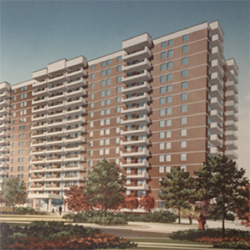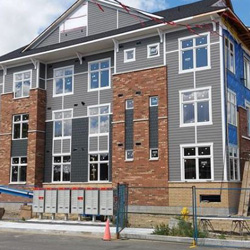The Human Rights Tribunal of Ontario aims to resolve discrimination claims filed under the Ontario Human Rights Code on matters such as employment, housing and services. The Code provides protection from discrimination on the basis of race, ancestry, place of origin, colour, ethnic origin, citizenship, creed, sex, sexual orientation, disability, age, marital status, family status, being a recipient of public assistance and record of offences.
In a housing context, sections 2 (1), 11 (1) (a) and 17 (1) and (2) of the Human Rights Code deal with disability and accommodation and are of interest concerning smoking and no-smoking policies.
If you are a tenant with asthma, allergies, COPD or any other disabling health condition that is being made worse by your involuntary exposure to second-hand smoke, you could file an application on the basis that your landlord has not taken reasonable steps to prevent second-hand smoke from coming into your unit. You could argue that the landlord has a responsibility to limit or ban smoking in the building in order to accommodate your disability.
In the summer of 2009 the Ontario Human Rights Commission published guidelines to help improve equal access to rental housing in Ontario. The document, Policy on Human Rights and Rental Housing, is Canada’s first comprehensive look at how barriers to housing can be identified and eliminated.
Section 6.1 deals with smoking, and concludes by stating:
“A housing provider has a duty to explore accommodation requests from tenants with any form of disability. Tenants may also be asked to cooperate and help facilitate the provision of accommodation for themselves, and where appropriate, for their fellow tenants as well.
However, given the inherent risks associated with smoking, a housing provider may have little or no obligation to accommodate a tenant’s need to smoke when to do so would amount to undue hardship, for example, by negatively affecting the health and safety of other tenants.”
We are aware of second-hand smoke cases filed in Ontario and many in British Columbia where tenants and strata (condo) owners have filed human rights applications against social housing providers or strata corporations for failure to get rid of second-hand smoke or provide smoke-free housing. For the first time, in May 2012 a couple from Langley, BC who owned a strata was awarded $8,000 for their involuntary exposure to second-hand smoke from their neighbour’s balcony. Read the story here.
You can search for human rights decisions on the website of the Canadian Legal Information Institute. Use key words “second-hand smoke” or “smoking.”
Be aware that if you choose to file a human rights application, it can be a long and time-consuming journey. You can apply for legal representation, but there is no guarantee that you will be provided with free representation. Go to legal resources for a list of organizations that may assist you if you are considering this route.






